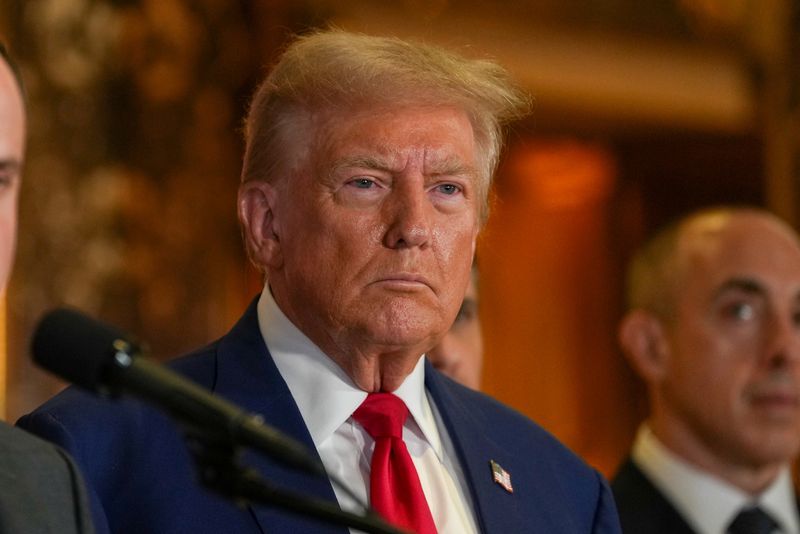Investing.com — Republican presidential candidate Donald Trump’s tariff proposals would dent earnings in S&P 500-listed companies if he should enact them after winning a second term, according to analysts at Barclays.
Trump has outlined plans to impose aggressive tariffs on the $3 trillion worth of imports into the US, including a 10% to 20% levy on all foreign goods and a 60% tax on items from China.
The former president has said the tariffs are needed to protect working-class jobs and crack down on what he has deemed to be unfair practices by US trading partners, particularly those with which Washington runs a large bilateral trade deficit, such as China and the European Union.
Funding raised by the tariffs, estimated to be in the trillions of dollars, could help offset the costs of sweeping corporate tax cuts that Trump is also targeting, according to media reports.
In a note to clients on Thursday, the Barclays analysts projected that the tariffs proposal would lead to a 3.2% drag on S&P 500 earnings next year, along with an additional 1.5% hit if countries choose to retailate with similar measures.
“While the direct impact seems modest, second-order effects from a combination of higher prices and lower-growth shocks that tariffs imply could act as an incremental headwind to corporate earnings,” the analysts wrote.
They added that the “materials, discretionary, industrials, technology, and healthcare sectors” appear to be “most at risk” from the tariffs “given their strong dependency on global supply chains.”
Following a key presidential debate between Trump and Democrat Kamala Harris earlier this week, national polling shows Trump’s rival holding a narrow lead for the White House, although the race remains tight in crucial swing states.
Regardless of the outcome of November’s ballot, the Barclays analysts projected that the US Congress will remain divided at least at the beginning of either Trump or Harris’s administrations. As a result, they argued that the new president would likely need to “resort to executive and regulatory actions to advance policies that do not require legislation.”
“For example, the president has wide authority to set tariffs,” they added.
